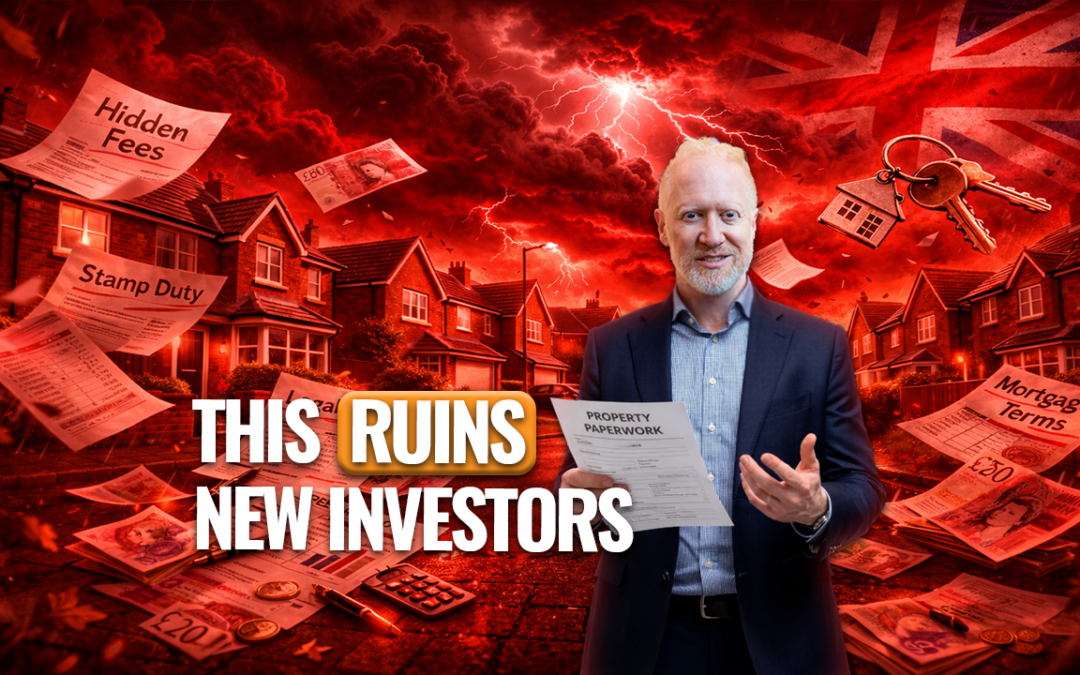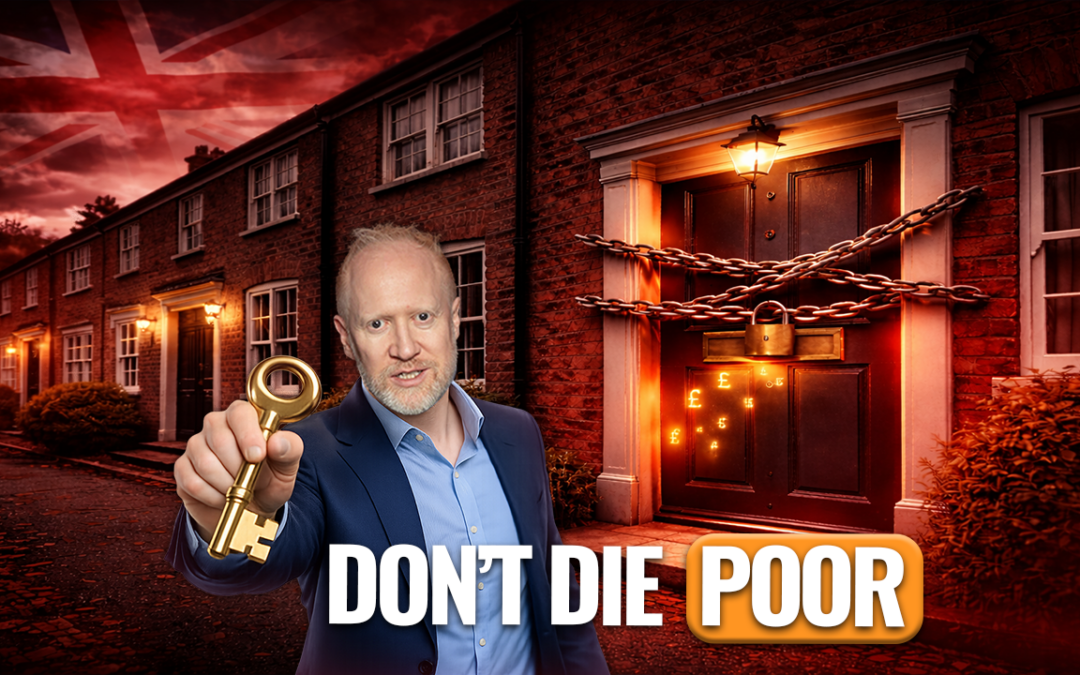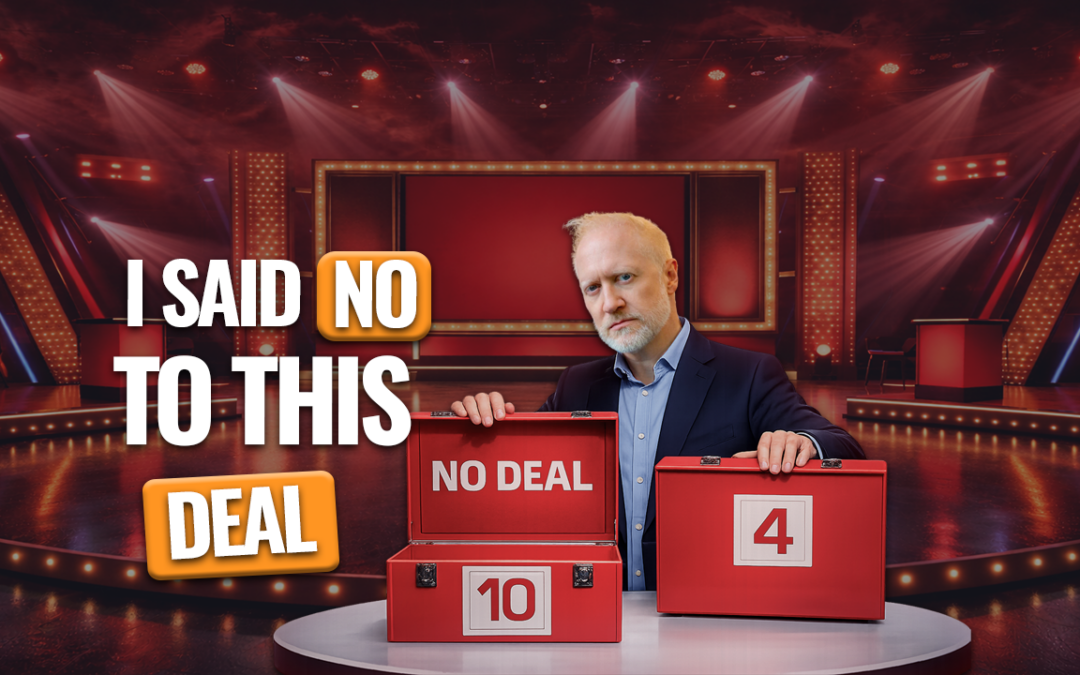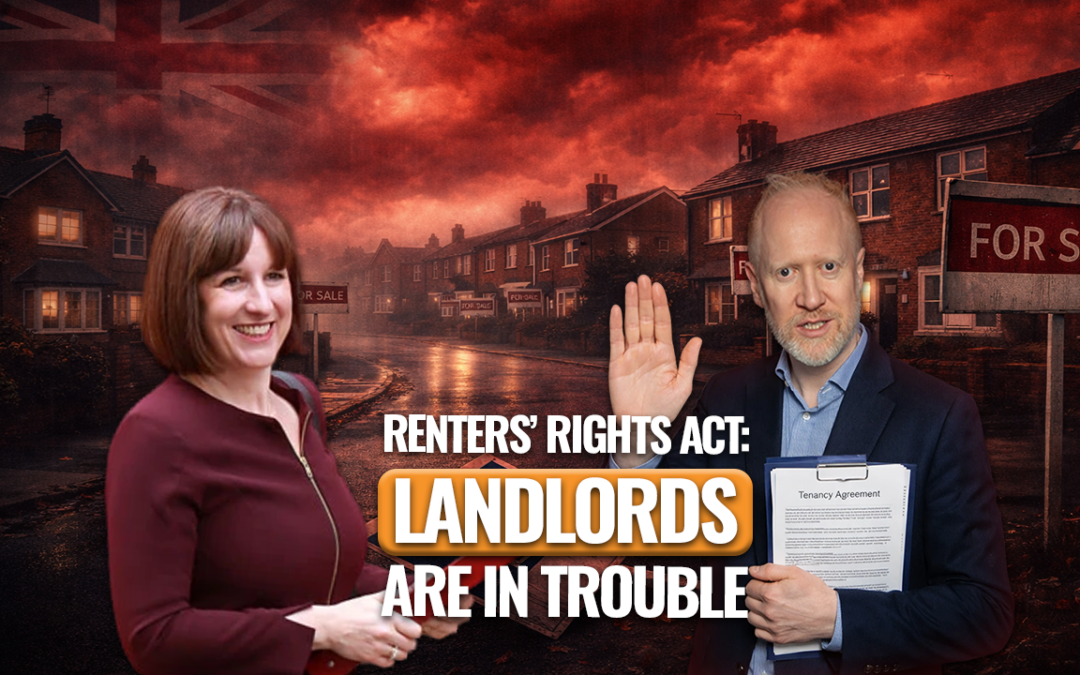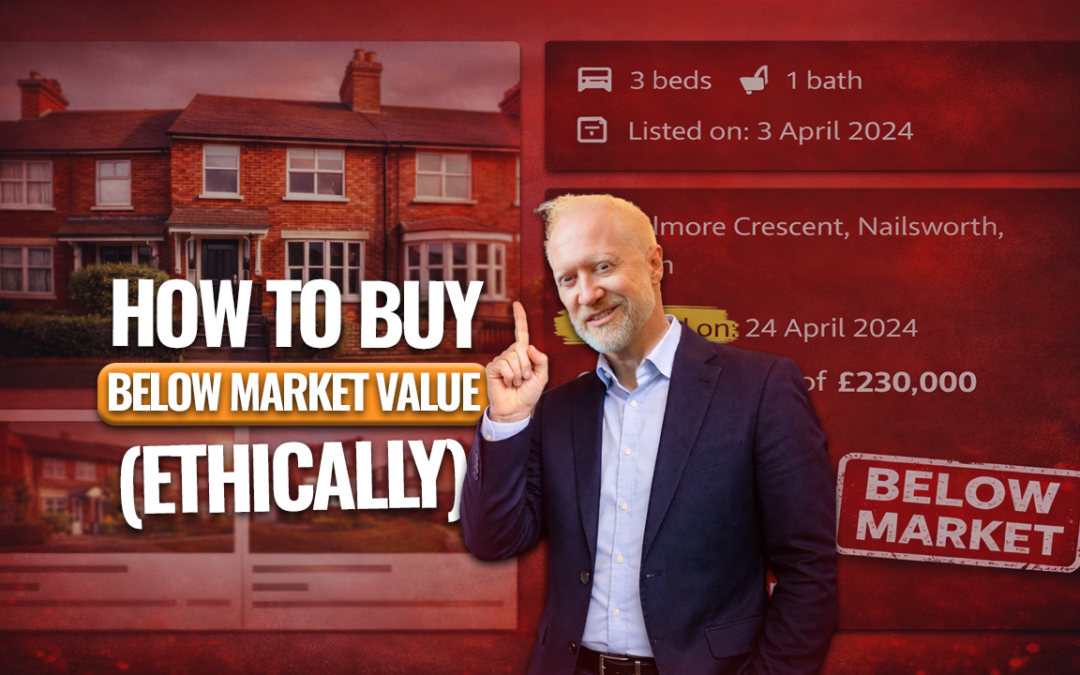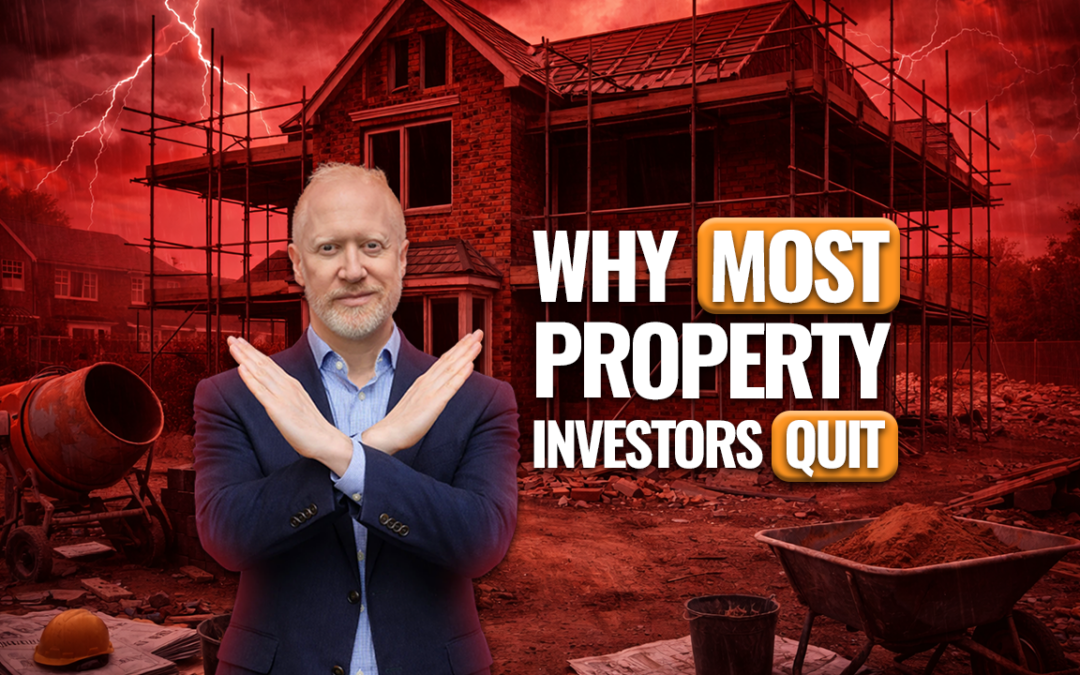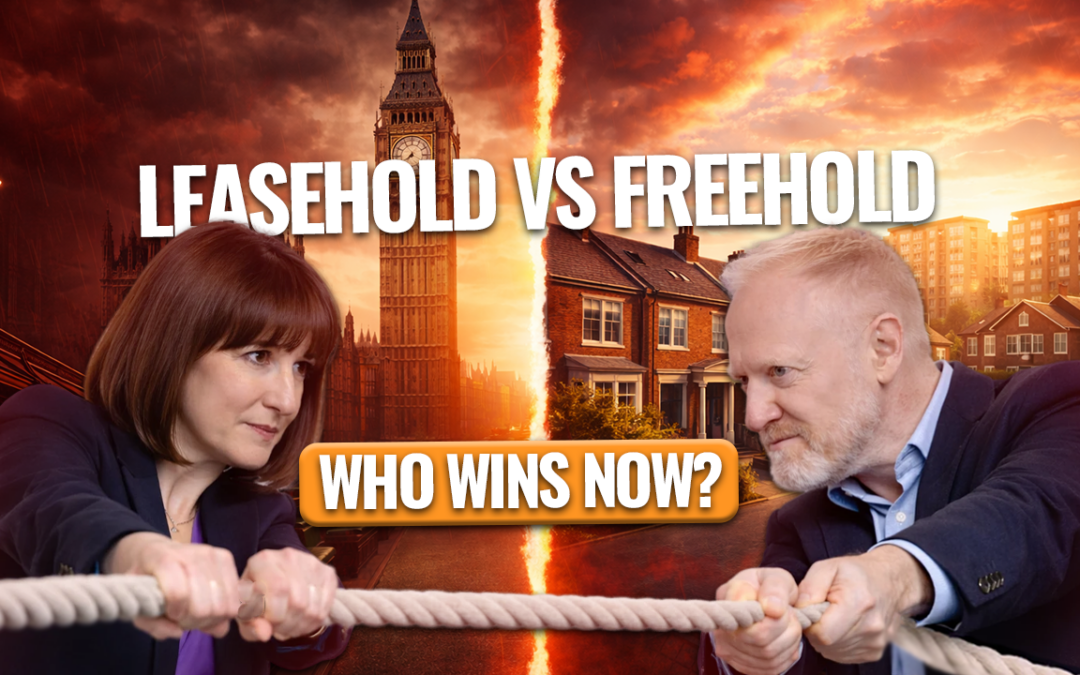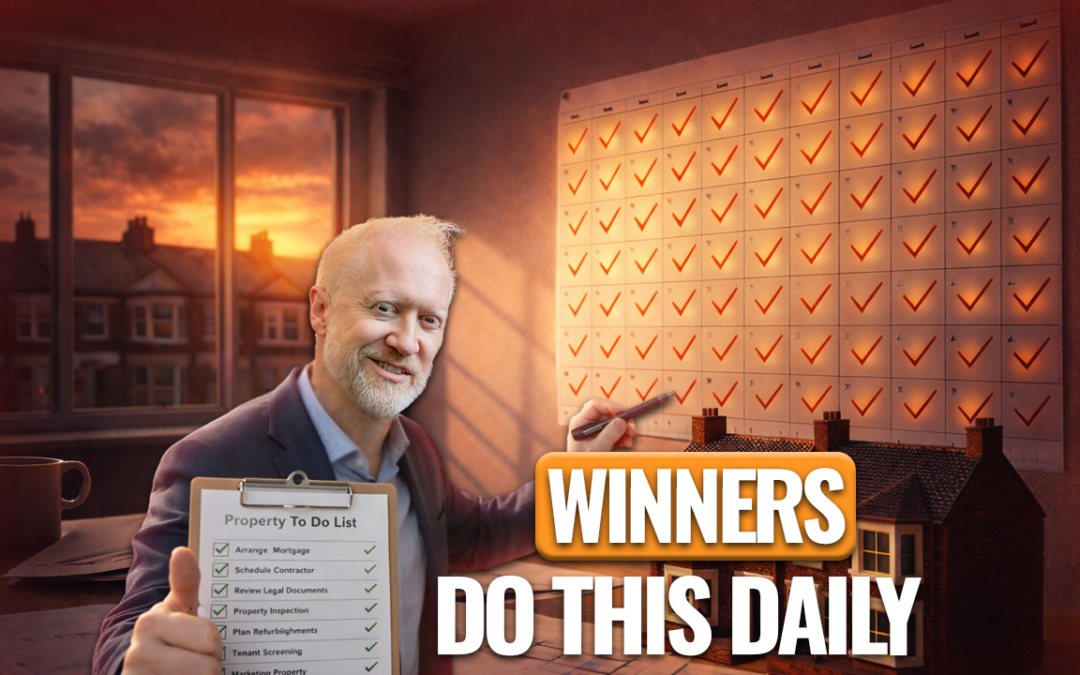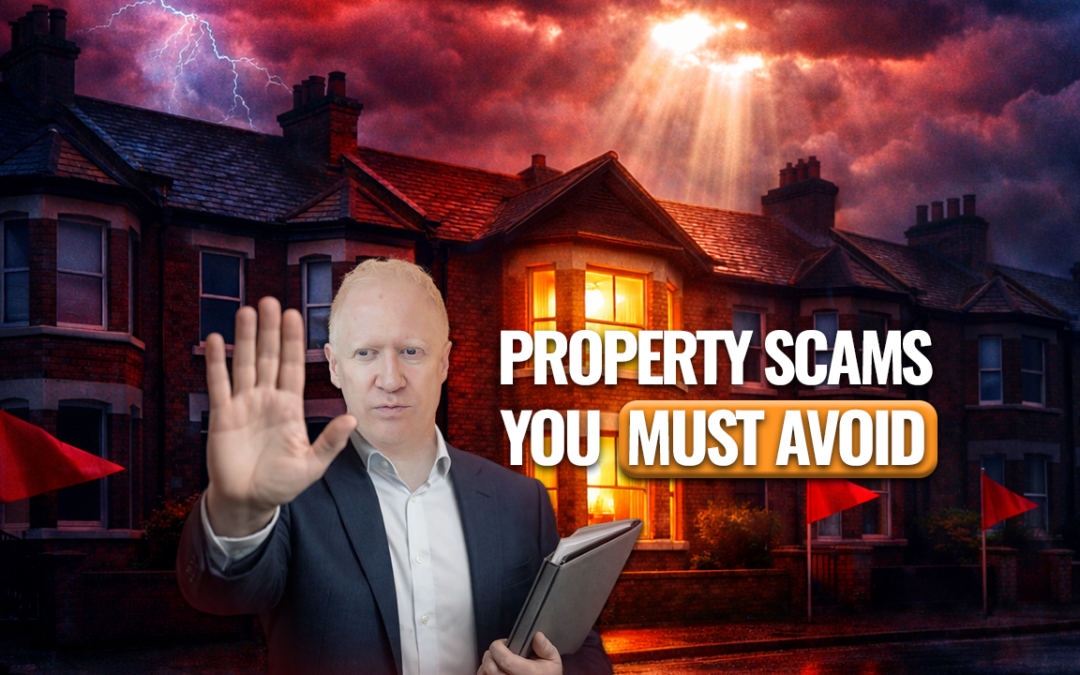In this blog, I want to share with you the 22 questions you should ask property sellers. Actually there are 13 key questions and then nine follow on questions that most investors wouldn’t even think about asking or dream asking. Once you know these questions, you’re going to get a competitive advantage and be able to do more property deals.
These questions are actually taken from episode number 37 of my Property Magic podcast. If you haven’t subscribed to that, you might want to go and check it out on iTunes or Google Play or Spotify, and just download Property Magic podcasts. There’s hours and hours of free content on there that I think you’ll find really valuable. In this blog are the 22 questions that you should ask every seller.
Understand Who You’re Speaking to
The first one, when I’m speaking to someone about the property, I want to understand who owns the property. I want to understand if I’m actually speaking to the owner who is the decision maker. That’s really important because sometimes you might get a call from a friend or a brother or an uncle or someone who owns a property. You want to speak to the decision maker. So make sure who actually owns the property. If a couple owns the property, you want to speak to both of them at the same time.
Question number two, when did you buy the property? I want to understand is this something they bought recently and for some reason they’re selling it. Something they’ve had a very long time, which maybe means there’s going to be some really good capital growth over time.
When did they buy the property? I’m really interested if they bought it around 2007, 2008, because there’s a really good chance they bought it at the peak of the last property market. As we know, prices came down, in most parts of the country prices have come up beyond the 2007 peak, but some places they haven’t. So I want to understand, maybe is there equity in the property or not.
“If a couple owns the property, you want to speak to both of them at the same time.”

Dig a Bit Deeper & Be Specific
Question number three, and this leads onto some extra follow on questions, is who lives there? Who lives in the property? Now very often, it’s the people you’re speaking to. They actually live there themselves, and I then say, “Okay, great, do you have somewhere to move on to already?” You see if they found their dream home, that they are looking to buy and they can’t move until they sell this one, they might be more flexible on the price. But actually maybe they haven’t found where they want to go to and they want to get a sale agreed. They want a little bit of time to find the place they’re going to move on to. So I really want to dig a bit deeper and find out about their personal circumstances.
Then if they say they are looking to move on, I want to know, are you looking to buy or are you looking to rent? Just because someone owns a house right now, doesn’t necessarily mean they want to buy a new one. Maybe they want to go and check out an area before they buy, or maybe they’ve had such a terrible experience as homeowners, they don’t want to do that again and they just want to rent. So again, never make any assumptions. You need to ask specific questions.
Next question, number six is how long, if they don’t live there, how long have the tenants been there? Very often it’s a landlord who might be selling the property. And again, I want to make sure are they just short term tenants who’ve come in quickly? Are they long term tenants who are looking after the property?
The next question number seven, how much rent do they pay? And again, don’t assume you know. Very often if you’re buying from a landlord, especially if they’ve had tenants there for a long time, they’re not charging the full rent. So you need to find out how much are the tenants currently paying and is there a possibility to increase the rent by improving the quality?
Question number eight, are they up to date with their rent? I don’t want to buy a property that’s full of tenants who are not paying ’cause I’m just going to inherit that problem from the landlords.
Number nine, also about tenants, I want to understand what contract are they on? Ideally, when you buy a property, if you have tenants in place, you want to make sure they were on an AST contract, assured short term tenancy contract.
So the next thing I want to understand when I’m looking to buy a property is question number 10, is it a free hold or a leasehold property? Ideally, I want to buy freehold. If it’s a leasehold it means, well actually I’m only buying part of that building because there are other people there who also own other parts. And there’s a lease holder who owns the overall building. So if that’s the case, if it’s a leasehold, there are some further questions we need to ask. The first one should always be how long is left on the lease? Now, many leases are 125 or 150 years, and they will start expiring. The reason we need to know that this, if the lease is less than 70 years, it’s very difficult to get a mortgage on that property. So the lease would need to be extended. That’s often when you might see a very cheap property is because it’s got a short lease. So how long’s left on the lease? Make sure ideally well over 80 years.
“So how long’s left on the lease? Make sure ideally well over 80 years.”
Service Charge & Ground Rent
The next question I want to ask number 12 is, how much is the service charge and ground rent? Ground rent is an annual fee we pay to the owner. It might be a couple 100 pounds. The service charges are what we pay as our contribution to the communal area, cleaning and lighting. It may be the maintenance of the building and the grounds. It might be a sinking fund. If it’s a really nice development, there might be a concierge. There might be a gym, swimming pool. All these things need to be paid for and maintained.
I’ve had properties where the service charge is anywhere from 600 pounds a year, up to the highest I had was 2,900 a year. That was a very high service charge. And it’s because they had some very old fashioned lifts that were very expensive to maintain. They had lovely gardens, they had a porter. So obviously we had to pay for all of that. So understanding if it is a leasehold property, how much are the service charges is really important ’cause that will obviously affect the cash flow that you’re going to make from this property.
If there is a short lease, if it’s less than 70 years, question number 13, I want to know is, do they know how much it will cost to extend the lease? Now the owner may or may not know. They may not know because they just haven’t inquired or maybe they do know. And the reason they haven’t done it is because they don’t have the money to do it. So I just want to understand if they have a ballpark figure. Obviously you would check that and verify it, but it’s a good idea to get a bit of a sense check on it.
Question number 14, and this one you might ask people anyway, but many people don’t, I’d say, so why are you selling the property? I want to try and dig down and understand their motivation for getting rid of this particular property.
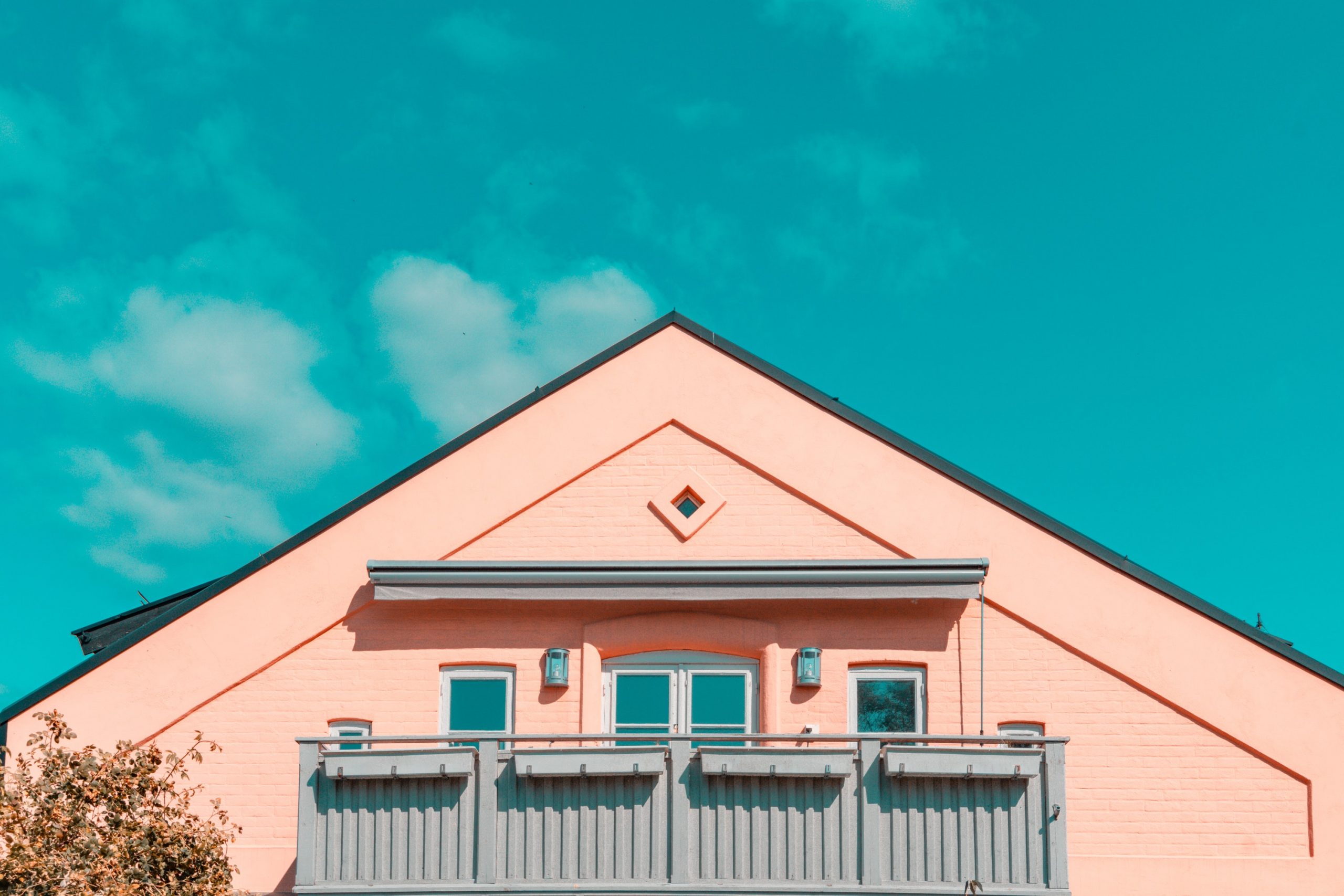
Timescale Estimates
Question 15 kind of linked to that is, are there any timescales you’re working to? Now this is really important because if they’ve got a deadline they’re trying to hit, maybe they need to, they’re immigrating and they’ve got their flights booked, or maybe they’re starting new work, or they need a bigger house because they’ve got a new addition to the family. If they’re working to a timescale and they’re getting close to that timescale, they’re going to get more and more motivated and so maybe flexible on the price or the terms of the sale. So understanding if there are any timescales is a really powerful bit of information for you to have.
Question number 16 is how much do you need for the property? Now, remember I used the word need. I didn’t say, how much do you want for the property? I said, how much do you need? Very often people want to get this for the sale, but actually they could do with this. This is what they need, this is what they want. I want them focusing on the lower figure, how much do they actually need.
Now question number 17 is a bit of a sensitive one. You have to ask this in a delicate way. And many people don’t like ask asking this and many people don’t like answering this, but if you’ve built a good rapport with the owner and you’ve got a bit of a relationship going and you position it the right way, say look, I hope you don’t mind me asking, but is there a mortgage on the property? If you’ve build a good rapport, they’ll probably tell you. They might be a bit sceptical or why do you need to know that, in which case I’d say, I’m going to look at various different ways of helping you and I want to make sure we structure a deal that works for you and works for me, of course. And so I just need to get all the information and make a proposal that’s going to work for you. So that’s why I kind of need to know that.
Please note that this is a very quick and rough approximation. But it means that you can quickly assess if a property will make positive cash flow before wasting too much time on it. If this assessment works then you can do a more detailed analysis of the actual cash flow. This will be part of your due diligence on the property.
In addition to working out the monthly cash flow, the buyer of the property will want to know what their ROI is. This is so that they can compare this property with another property. They will then be able to see what gives them the best return. After all, that is what investors do. They invest money to get the best return on it.
“They might be a bit sceptical or why do you need to know that, in which case I’d say, I’m going to look at various different ways of helping you and I want to make sure we structure a deal that works for you and works for me, of course”
Now this next question, number 18, is one of my favourite questions. This is a really good way of you finding out if they would be open to a low offer or if they would be open to a creative offer, such as a purchase lease option. So here’s the question you say, what’s more important to you? So you’re trying to get them to make a choice here. What’s more important to you, getting the property sold as fast as possible. So suggesting it’s going to be a quick sale, which ultimately suggests you’re going to pay less money for it or making as much as you possibly can from the property. So let me say that question again. So what’s most important to you? Getting the property sold as fast as possible or making as much money as you can from the property? Now, if they say, well, I need to sell as quick as possible. It’s probably going to be a lower cash offer. If they say, I want to get as much as I possibly can from the property, maybe they don’t need the money now, which means actually maybe things like purchase lease option or vendor finance, where we can give them the full market price, maybe that might be a better solution. So this is a great question to get people to open up and start to understand what might be a good solution for the seller.
Now another question number 19 is a little bit cheeky, but if you do it in a kind of friendly way, they might well answer. What I’d say to someone is, so what are you going to do with the proceeds from the sale? And you’re doing it in a very friendly, inquisitive way, not a so how are you using the money? It’s just a bit of a chatty way of a question you’re throwing in. They might say, well, actually, we’re just going to put it in the bank, which is great because there’s loads of things we can do with that. Or they might say, well, yes, I need it ’cause I’m buying another property or I’m investing in a business or I’m paying my home loan off. Again, it just helps us understand a bit more about that seller circumstance.
Now the next question, number 21, this is a great question to ask people when you’re doing a viewing round of property, let’s say you’ve been introduced by an estate agent and you’re looking around the property and the owner happens to be there. Very often estate agents don’t like you speaking to the owner because they think somehow you’re going to try and cut them out. And by the way, we’d never want to do that. If an agent’s bought a good deal to me, I want to make sure they get paid their commission because I want them to bring the next deal to me and the next one, the next one. For the sake of a couple of thousand pounds, I don’t want to cut them out. That agent could be a great source of deals for me. So I always want to look after the agent. But they’re sometimes a bit funny and they probably can’t give you their client’s details due to data protection, those kinds of things. But you could ask the client, the seller, directly yourself, the way you do this is what I call the Columbo moment.
So you’re kind of just walking out the house and you stop and you turn around, like Columbo used to say just, Oh, just one more thing. You know, in the TV show, he always used to kind of solve the murder mystery at that point. You turn around and say, just one more thing. And you look directly at the seller, in their eyes, with a smile and say, in case I’ve got any more questions, can I have your phone number please, and smile. In case I have any more questions, can I have your phone number please? Most of the time people say, yeah, sure, here you go, and they give you the number. The agent might be there, you’re not even looking at the agent, they’re not going to interrupt, they’re not going to say anything. So just ask them, just be bold, be friendly, be confident, and they will give you their number. And then I would call them later that same day and just say, hi, it’s Simon Zutshi, so your name. And I just want to say thank you so much for showing me around the property. I’m interested in the property. I’ve just got these extra questions. And then anything you forgot to ask when you’re going round or anything you’ve missed, you could call them and you can start a relationship with them. You can start seeing what kind of things might work for them.
So that’s question 21, and then the final question, question 22, if you use this particular question, I promise you, you will do more deals. If you consistently use this question. And so anybody you meet and you’re looking at one of their properties, you have to ask this question. You say, out of interest, and this is right at the end of the conversation, do you have any other properties? Because the property you’re looking at and talking about, it may or may not be a deal, but they might have other properties that are a deal and can work for you, so ask that question. I’m always telling my Mastermind students to try to drum it into the head to ask that question. And I promise you, you’ll do more deals as a result of that.
So I really do hope you found those questions useful, you might want to watch this video again and write those questions down. If you want to know more about finding the deal, there’s a link to some training I’m doing, where it talks about how do you actually find great deals in the first place? It’s completely free training. So why don’t come and register right now for that free training. And I’ll talk to you about how you can actually find great deals in the first place. And then you already know the questions you can ask the seller to try and find the best win-win ethical deal.

